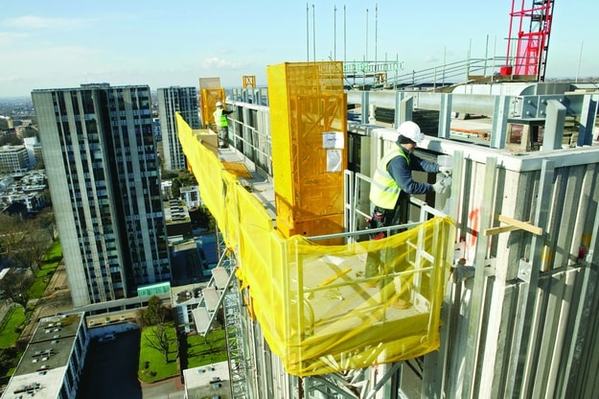You are viewing 1 of your 1 free articles
Committee chair: combustible materials on tower blocks ‘cannot be right’
It “cannot be right” that combustible materials should still be used on high-rise buildings, the chair of the Communities and Local Government Committee has said.
In a letter to Dame Judith Hackitt, the chair of an ongoing independent review into building regulations, Clive Betts said he was concerned that her review would focus on “an outcomes and risk-based regulatory system”, rather than prescriptive measures.
Dame Hackitt’s interim report found that the regulations are “not fit for purpose” and that current guidance is “complex and unclear”.
The current building regulations are risk-based, meaning that, for example, they instruct that cladding should not allow fire to spread across the outside of a building.
They are not prescriptive, and so do not specify any materials that can or cannot be used, for example, to clad tower blocks. Mr Betts suggested that this should change.
He wrote: “A risk-based system might leave the regulations too open to interpretation by an industry that you have already concluded requires a significant change in culture, moving away from an ethos of doing the minimum required for compliance as cheaply as possible.
“While you were clear that a risk-based approach would retain some fundamental standards that would underpin its framework, it is nevertheless the view of the committee that, in some areas, prescription is vitally important.”
Mr Betts’ letter also encouraged Dame Hackitt to consider systems for testing electrical appliances like the fridge-freezer which started the Grenfell Tower fire, noting that between 2010 and 2015, according to the Home Office, such appliances started 36,000 fires.
He also urged her to continue to focus on the partial privatisation of building control, which has led to private sector inspectors competing with local authority inspectors.
Mr Betts said local authority inspectors “could be reluctant to take formal enforcement action due to the cost of pursuing cases through the courts”.











